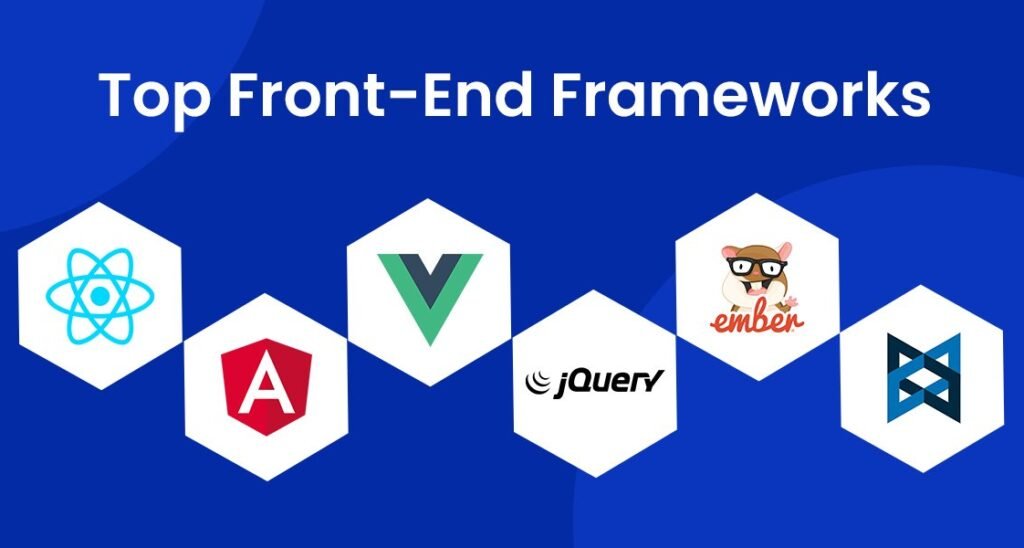Front-End Framework Comparison study
In this corner, we have the Front-End Framework Comparison:
- React: The undisputed heavyweight, backed by Facebook and a massive community.
React logo - Vue.js: The agile underdog, known for its ease of use and flexibility.
- Angular: The structured veteran, favored by enterprises for its comprehensive features.
- Svelte: The rising star, gaining momentum for its lightning-fast performance.
Svelte logo
And in this corner, the challengers:
- Next.js: Bringing React to new heights with server-side rendering and static site generation.
Next.js logo - Nuxt.js: Empowering Vue.js with similar capabilities for enhanced performance.
Nuxt.js logo - SolidJS: A minimalist contender, reimagining reactivity for smaller bundle sizes and faster loads.
SolidJS logo
Let’s delve into the key factors to consider when selecting your framework
1. Learning Curve:
- React: Moderate, with a focus on JavaScript fundamentals and JSX syntax.
- Vue.js: Beginner-friendly, with clear documentation and an intuitive approach.
- Angular: Steeper learning curve, attributed to its comprehensive structure and reliance on TypeScript.
- Svelte: Unique syntax, yet generally regarded as easy to grasp.2. Performance:
- React: Can be fine-tuned for speed, although the initial load times might be slower.
- Vue.js: Offers excellent performance with virtual DOM and efficient updates.
- Angular: May exhibit slower performance during the initial load; however, it excels in large-scale applications.
- Svelte: Shines with lightning-fast performance, minimal bundle sizes, and compile-time optimizations.
3. Community and Ecosystem:
- React: The largest community and a vast ecosystem of libraries and tools.
- Vue.js: A growing community with a strong focus on developer experience.
- Angular: Backed by Google and a mature ecosystem, but less active than React’s.
- Svelte: Newer, but rapidly gaining popularity and a dedicated community.
4. Scalability:
- React: Handles complex applications well, with support for component-based architecture.
- Vue.js: Suitable for both small and large projects, with flexible scaling options.
- Angular: Ideal for enterprise-level applications with strict structure and maintainability needs.
- Svelte: Excellent scalability for smaller to medium-sized apps, but still maturing for larger projects.
5. Developer Experience:
- React: Depends on third-party tools for a complete development environment.
- Vue.js: Offers a streamlined setup and enjoyable development process.
- Angular: Provides a comprehensive framework with built-in tools and conventions.
- Svelte: Simplifies development with its unique approach to reactivity and lack of a virtual DOM.
Conclusion for Front-End Framework Comparison study is as folow:
Ultimately, the best framework depends on your specific project needs and team preferences. Experiment with different options to find the perfect fit for your development style and project goals.

